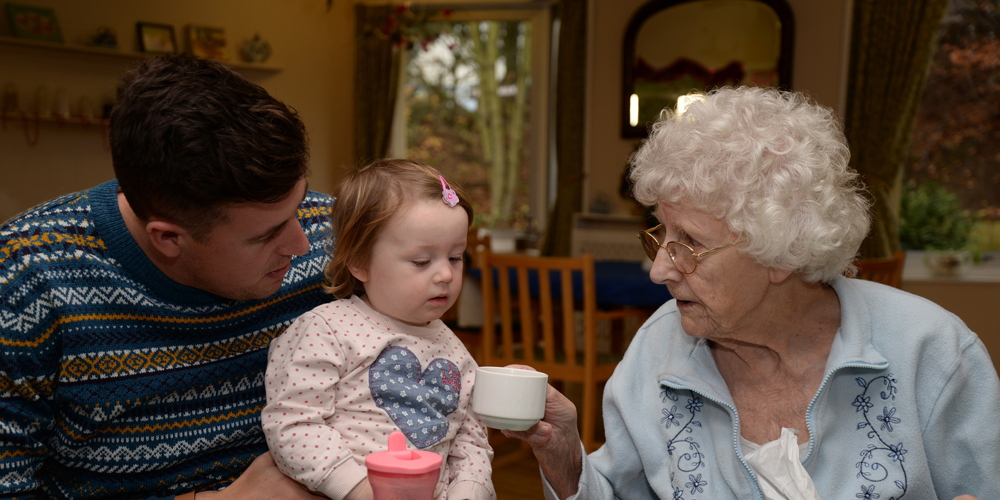Listening to the right people
It’s always difficult to predict the twists and turns of any general election campaign, but the outcome of the last was truly beyond anyone’s expectations. Theresa May went from having the largest poll lead of any Conservative prime minister in...
It’s always difficult to predict the twists and turns of any general election campaign, but the outcome of the last was truly beyond anyone’s expectations. Theresa May went from having the largest poll lead of any Conservative prime minister in modern history, only to crash and burn in such spectacular fashion. In the history books, dementia will now forever be known as the cause that no one saw coming.
A snap election left the British public with six short weeks to prepare for their decision at the ballot box. From headlines to TV debates, it was hard to ignore the noise with parties of all colours pushing their issues to the forefront. For an election anticipated to be all about Brexit, it turned out to focus on everything but.
Most interestingly for advocates of those affected by dementia, social care absolutely dominated the final weeks of the campaign, and arguably lost Theresa May her majority. The controversy around the Conservative party’s manifesto commitments, which would have undoubtedly made a broken care system even worse for those with dementia, led to social care reform becoming one of the key election issues of 2017. ‘Dementia Tax’ was trending on social media for days, dominating airtime and column inches in the mainstream and regional press. Fundamentally ‘Dementia Tax’ changed the way people intended to vote and the way they viewed Theresa May, by calling into question both her judgement and her style of government. It was the ultimate blow for a Conservative election strategy based entirely on May’s character: a model of strength and the only option to lead Britain through the Brexit negotiations.
But what can Labour do now to tackle the ever complex issue of social care – the policy area that become so toxic to Theresa May – and avoid making her mistakes? To me, it’s so simple. Her policy was doomed because of her complete lack of consultation with anyone who has been affected by dementia or in receipt of social care. Labour’s strengths lie in its openness to listen, to engage and to be in tune with what matters to its voters. And we must make sure we do that from here.
There is a danger that this debate is now yesterday’s news, and that dementia is going to move down the political agenda and no one will be talking about this crucial issue. And yet people with dementia and their families have been living with a catastrophic social care system a lot longer than the mere few weeks the campaign gave them as a moment to be heard. Frankly they can’t wait any longer.
What’s important now is to keep turning up the volume on the experiences that people with dementia are currently facing. Naturally a government of any colour is interested in the figures, the impact on the economy, workers’ rights and the scale of the issue. And yes, ultimately we are interested in what wins us an election. But let’s not lose sight of the sheer impact on the everyday lives of people with dementia and their families. It is a system so fundamentally broken that right now, no one can guarantee quality care or dignity in later life. Nor can people who live with dementia be assured that the money they intend to pass on to their children or their grandchildren will reach them, because they are increasingly likely to be spending everything they have earned on basic care. Let’s also not lose sight of the emotional, mental, physical cost of caring for someone with high care needs; of being there for someone whilst worrying about bills on average as high as £100,000 over the course of the condition. And most importantly, let’s hold this weak government to account to see they finally confront this issue: to begin the work that will change the lives of people living with dementia today and to prepare us for an ageing population of the future.
A huge part of that exercise is speaking to the third sector organisations that represent and fight for a better reality for those people who rely on social care every day. Having worked for two older peoples’ charities, I know we have a huge role to play in setting the policy agenda, particularly on something as difficult to fix as the social care system. Our perspective and outreach is invaluable to a party who wants to listen. Labour is that party, but we must also believe that this issue crosses party lines. There will be 1 million people living with dementia by 2021, many of whom will rely on social care to get up in the morning, to wash, dress and eat. Let’s make later life something Britain can be proud of; because we are better than this.

